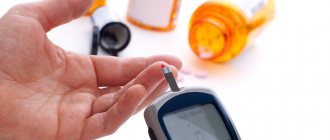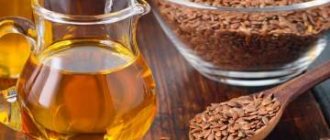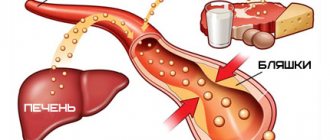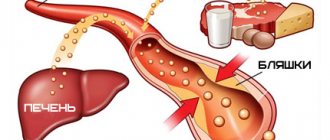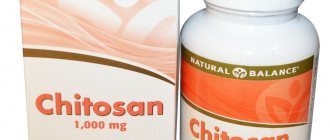People suffering from elevated cholesterol levels in the blood know that this pathological condition leads to atherosclerosis. And this disease, in turn, leads to the development of heart attacks, strokes and massive damage to the vascular network throughout the body.
That is why the question of which tablets are very good and inexpensive are used to lower cholesterol levels is very relevant. Only a specialist can prescribe medications that prevent the formation of atherosclerotic deposits in capillaries and arteries.
A preliminary examination is carried out to assess the state of health, blood vessels, internal organs and systems. And only then, based on the data received, the doctor selects the appropriate medications. This article is for informational purposes only, since choosing anti-cholesterol drugs on your own can lead to a number of complications.
The best pills to lower blood cholesterol.
May 13, 2021
9867
5
2
Content
- Atoris
- Livazo
- Ezetrol
- Roxera
- Ineji
If you have had a blood test that shows that your cholesterol levels are elevated, be sure to consult your doctor. He will give recommendations on nutrition and lifestyle adjustments. If necessary, he will prescribe the most effective cholesterol pills that will reduce the risk of developing dangerous diseases.
Read also Top 10 best blood thinners Blood thinners Lipidogram
is a blood test for cholesterol, and if it shows a high level of only “bad” or total cholesterol, you should take this seriously and do everything to reduce these levels.
For some people, to reduce cholesterol, it is enough to change their lifestyle (diet and more physical activity), but for others whose levels are too high, they need to add drug treatment. If your doctor has prescribed you medications to lower cholesterol levels, take them according to a clearly indicated schedule and do not skip them, because your health depends on it.
There are different groups of drugs to normalize cholesterol .
Statins.
They are suitable for most patients, and they are the only drugs that directly reduce the risk of heart attack or stroke. If statins do not help you or there are unwanted side effects, your doctor will help you choose cholesterol pills from a different group.
PCSK9 inhibitors.
Drugs in this group for lowering “bad” cholesterol deactivate the protein in the liver. PCSK9 inhibitors are often prescribed in parallel with statins.
Selective cholesterol absorption inhibitors.
This is a relatively new group of drugs that interfere with the absorption of cholesterol in the intestines. SIACs are most effective in reducing the level of “bad” cholesterol, and can also increase “good” cholesterol. Such medications are prescribed for high cholesterol levels, as well as for some hereditary problems with lipid metabolism.
Resins.
This group of cholesterol-lowering drugs is also called bile acid sequestrants or bile acid binders. Resins act in the intestines, helping to remove cholesterol. Our body uses cholesterol to produce bile. If the level of bile in the gastrointestinal tract is insufficient, the liver will stimulate its production, and the more bile produced, the more cholesterol the liver needs. As a result, less of it will circulate in the blood.
Fibrates.
These drugs are very good at lowering triglyceride levels and often normalize the “good” level. At the same time, fibrates have virtually no effect on “bad” cholesterol.
Niacin (nicotinic acid, vitamin PP or B3).
This substance affects the production of fats by working in the liver. When taking drugs from this group, it is necessary to monitor liver function, since niacin is toxic. Side effects include: upset stomach, redness, itching. Patients with diabetes should take the drug with caution, as it may increase blood sugar levels.
Omega-3 ethyl esters.
Cholesterol drugs in this group are made from fish oil (modified and purified). Prescribed against the background of a special diet to reduce cholesterol levels. Serious side effects may occur in patients with allergies to fish or shellfish.
Fish oil with omega-3 polyunsaturated fatty acids (PUFAs).
These supplements are also called omega-3 acids and are prescribed to lower triglyceride levels.
All of the above drugs should be prescribed exclusively by a doctor, because there are contraindications and side effects with large doses of such drugs. Dangerous side effects include hemorrhagic stroke and sugar spikes in diabetics.
In Russia, doctors usually prescribe statins to lower cholesterol levels, so let’s talk about drugs from this group.
What are statins
The class of statins are pills that are most often prescribed by doctors to patients with high levels of cholesterol in the blood plasma. Therefore, it is believed that statins are the best means for normalizing cholesterol levels, preventing heart attack, ischemia and cerebral hemorrhage.
But to understand the mechanism of action of this group of medications, you should know how lipophilic alcohol is formed, what its purpose and role in the body are. Cholesterol is 85% produced in the body on its own, and only the remaining 15% comes from food.
An organic compound is involved in many processes:
- biosynthesis of hormones, including sex hormones;
- protection of red blood cells from toxic damage by hemolytic poisons;
- regulation of vascular permeability and cell membranes;
- production of bile and vitamin D;
- maintaining the strength of cells throughout the body.
For the full supply of cholesterol to all tissues and internal organs, special proteins are produced - lipoproteins. If the level of lipophilic alcohol in the body is elevated, measures must be taken to reduce it.
In the initial stages of atherosclerotic changes, these include diet, exercise, giving up addictions, proper rest and frequent exposure to fresh air. If the above measures have no effect, doctors prescribe statin drugs. They inhibit the production of enzymes involved in the production of lipoproteins.
As a result, the volume of cholesterol penetrating deep into tissues decreases, and the volume of reverse transport increases. In connection with taking drugs from the statin group, the amount of lipophilic alcohol in the body decreases, and at the same time the fat and plaques already accumulated in the capillaries are broken down.
The benefits and harms of drugs
Statins are not a group of drugs that you can prescribe yourself, since they have a lot of side effects if used incorrectly. With a slight increase in cholesterol levels, you can cope with it at home with the help of diet and physical therapy. But if there are serious indications, doctors in most cases recommend taking statins.
If non-drug treatment is ineffective, this group of drugs can not only reduce total cholesterol levels, but also prevent dangerous diseases of the cardiovascular system. Benefits of statins:
What medications are statins?
- reducing the risk of having a heart attack;
- prevention of cerebral hemorrhage;
- relieving signs of vascular atherosclerosis and preventing complications of the disease in the future;
- stabilization of cardiac activity during angina and ischemia;
- relief of diabetes mellitus;
- weight loss in obese patients;
- relieving inflammation of capillary walls;
- blood thinning and thrombosis prevention;
- increase in the diameter of the lumen of capillaries;
- establishing exchange processes.
Statins are prescribed to speed up recovery after a heart attack, cerebral hemorrhage, pulmonary embolism, as well as after surgery (stenting, coronary bypass surgery, angioplasty). Statins, designed to lower blood cholesterol, also have disadvantages, the main one being the development of side effects.
With a decrease in the amount of lipoproteins produced by the body, the production of coenzyme Q10 also decreases. This substance is designed to provide muscles and brain tissue with energy reserves, and if there is a lack of coenzyme, a person begins to suffer from muscle pain, weakness, surges in blood pressure, apathy and fatigue.
With continued use of statins, muscle tissue destruction may begin, scientifically called rhabdomyolysis. Side effects can occur if the pills are used incorrectly by any of the body systems.
Atoris
This cholesterol-lowering drug comes in tablet form and is available by prescription. The active substance is atorvastatin. "Atoris" is a third-generation cholesterol-lowering medicine and, when taken in a course, helps to cope with the problem. Typically, this drug is prescribed for severe forms of hypercholesterolemia, hereditary high cholesterol, etc. Atoris is indicated for diseases of the cardiovascular system, high risks of coronary artery disease and heart attack.
Cholesterol pills are generally well tolerated, although they do have side effects: joint pain, digestive problems, constipation, muscle pain, liver problems and increased blood sugar.
Contraindications include pregnancy, breastfeeding, serious liver and kidney diseases. In parallel with taking Atoris, you should not drink grapefruit juice or eat the fruit itself.
Atoris
JSC "Biolek", Ukraine
hypercholesterolemia: - as an adjunct to diet to reduce elevated total cholesterol, LDL-C, apo-B and TG in plasma in adult patients, adolescents and children aged 10 years or older with primary hypercholesterolemia, including familial hypercholesterolemia (heterozygous) or combined (mixed) hyperlipidemia (type IIa and IIb, respectively, according to the Fredrickson classification), when the response to diet and other non-drug treatment methods is insufficient;
- to reduce elevated total cholesterol, plasma LDL cholesterol in adult patients with homozygous familial hypercholesterolemia as an adjunct to other lipid-lowering treatments (for example, LDL apheresis), or if such treatments are not available. prevention of cardiovascular diseases: - prevention of cardiovascular events in adult patients at high risk of developing primary cardiovascular events, as an addition to the correction of other risk factors; — secondary prevention of cardiovascular complications in patients from 159
860
- Like
- Write a review
Fibrates
Drugs belonging to the class of fibrates are also often used to reduce high cholesterol levels, or more precisely, to reduce the amount of “harmful” lipophilic alcohol in the blood and increase the amount of “useful” ones. Fibrates also slow down the progression of atherosclerosis, including in patients with ischemic heart disease. Taking medications from this group reduces mortality rates among patients with pathologies of the cardiovascular system.
Tablets are divided into several generations:
- Clofibrate - this drug is now rarely prescribed by doctors after receiving information that it causes cholangiocarcinoma and the growth of tumors in the gastrointestinal tract (gastrointestinal tract).
- Gemfibrozil and Bezafibrate.
- Fenofibrate and Ciprofibrate.
Fibrates are agonists of a subclass of nuclear receptors that regulate lipoprotein metabolism, apoprotein production, and other mechanisms. As a result of taking one of these drugs, the concentration of high-density lipoproteins in the blood clearly increases, the level of triglycerides decreases by 30–50%, and low-density lipoproteins by 10–20%.
If the patient's triglyceride level is above 5.6 mmol/l, the administration of fibrates is mandatory to avoid the development of acute pancreatitis. Fibrate dosage:
- Gemfibrozil – 600 mg twice a day;
- Bezafibrate – 200 mg 2-3 times a day;
- Ciprofibrate – 100 mg 1–2 times a day;
- Fenofibrate – 145–200 mg once daily.
Typically, fibrate drugs are well tolerated and can effectively lower the level of bad cholesterol in the blood. Side effects include abdominal pain, bowel movements, bloating, sleep problems, skin rashes and dizziness.
Fibrates are not prescribed to patients with cholelithiasis because they increase the lipogenicity of bile when taken long-term. When prescribed simultaneously with statins, constant monitoring of blood, urine and liver transaminase levels is required.
Livazo
These fourth generation high cholesterol pills are available by prescription. The active substance of Livazo is pitavastatin. This cholesterol medicine is best suited for people with diabetes: it does not increase blood sugar levels or affect glucose metabolism. It is very important to choose the right dose of the drug to prevent unwanted serious reduction in cholesterol.
Livazo
Pierre Fabre, Switzerland
- primary hypercholesterolemia, including heterozygous familial hypercholesterolemia (hyperlipidemia type IIa according to Fredrickson classification) or mixed hypercholesterolemia (hyperlipidemia type IIb according to Fredrickson classification), hypertriglyceridemia (hyperlipidemia type IV according to Fredrickson classification) as an addition to diet, when diet and other non-drug treatments (eg exercise, weight loss) are insufficient.
from 633
792
- Like
- Write a review
Ezetrol
The tablets can be purchased with a prescription, and the active ingredient in the cholesterol drug is ezetimibe. "Ezetrol" selectively prevents the absorption of cholesterol. This is a new generation medicine that does not stimulate the secretion of bile acids and does not inhibit cholesterol synthesis in the liver. The main effect of Ezetrol is aimed at reducing the flow of bile acids from the intestines to the liver. Thus, cholesterol reserves are reduced and it is intensively removed from the blood. "Ezetrol" is indicated for diabetes mellitus and various causes of high cholesterol.
Side effects include changes in blood tests, allergies and diarrhea. This drug is contraindicated during pregnancy, breastfeeding, and serious liver diseases.
Ezetrol
Schering-Plough, Switzerland
Primary hypercholesterolemia (in combination with statins or as monotherapy in addition to diet to reduce elevated levels of total cholesterol, LDL cholesterol, apolipoprotein B and triglycerides, as well as to increase HDL cholesterol levels in patients with primary hypercholesterolemia);
homozygous familial hypercholesterolemia (in combination with statins it is recommended to reduce elevated levels of total cholesterol, LDL cholesterol, and the use of LDL apheresis is also possible); homozygous sitosterolemia (or phytosterolemia) - increased levels of plant sterols in plasma with elevated or normal levels of cholesterol and normal triglycerides. from 1024
593
- Like
- Write a review
A nicotinic acid
Nicotinic acid (niacin or vitamin PP) has a multidirectional effect on fat metabolism in the human body. This substance is an important part of some enzymes, without which they will not be able to carry out their function - redox processes in the cells of our body [1].
Under the influence of nicotinic acid, the breakdown of lipids in adipose tissue decreases, the level of “bad” cholesterol decreases and the content of “good” cholesterol increases [3]. This reduces the risk of atherosclerotic vascular damage.
Roxera
Cholesterol-lowering tablets are available by prescription and the active ingredient is rosuvastatin. This is the most modern drug of the fourth generation, which has a minimum of side effects. “Roxera” reduces “bad” cholesterol and normalizes “good” cholesterol, cleanses blood vessels of fat deposits and reduces the risk of the formation of cholesterol “plaques”.
This drug is prescribed for the prevention of atherosclerosis with negative heredity in this regard; for the treatment of atherosclerosis, which already exists, as well as its complications. The huge advantage of the drug is that it helps not only fight atherosclerosis, but also relieves inflammation in blood vessels.
"Roxera" should be taken with caution if you have liver disease; taking this medicine during pregnancy and lactation is prohibited. You should not take alcohol or any antibiotics if you are taking Roxera.
Roxera
KRKA (KRKA), Slovenia
- primary hypercholesterolemia (Fredrickson type IIa) or mixed dyslipidemia (Fredrickson type IIb) as an addition to diet when diet and other non-drug treatments (for example, exercise, weight loss) are ineffective;
- familial homozygous hypercholesterolemia as an addition to diet and other lipid-lowering therapy (for example, LDL apheresis) or if such therapy is not effective; - hypertriglyceridemia (type IV according to Fredrickson) as an addition to the diet; - to slow the progression of atherosclerosis as an addition to the diet in patients who are indicated for therapy to reduce plasma concentrations of cholesterol and LDL cholesterol; - primary prevention of major cardiovascular complications (stroke, myocardial infarction, arterial revascularization) in adult patients without clinical signs of coronary artery disease, but with an increased risk of its development (age over 50 years for men and over 60 years for women, increased plasma concentration of C- reactive protein (≥2 g/l) if present, minimum 275
1300
- Like
- Write a review
Which cholesterol pills are best to buy?
High levels of cholesterol in the blood are a problem for many people, which has no age restrictions. Therefore, people often think about how to lower cholesterol in the blood, what effective drugs should be used to improve all the functions of the body. Only a doctor can give an accurate mark after passing all the necessary tests. Among the entire rating, there are several medications that are prescribed most often:
- Atorvastatin is a fast-acting drug for protracted stages;
- Rosuvastatin is a drug for the prevention of cholesterol plaques;
- Fenofibrate is a fibrate with a good composition and does not cause side effects;
- Colestipol is a safe sequestrant that normalizes cholesterol levels in the blood;
- Cardio Active Omega-3 is a herbal preparation to improve all functions of the cardiovascular system.
Cholesterol-lowering pills should have a non-aggressive effect on the body, not cause negative effects, and gradually reduce cholesterol levels. When choosing medications for treatment, you should consult your doctor.
Ineji
These high cholesterol pills are also available with a prescription only. Ineji belongs to a new group of drugs - statins with cholesterol absorption inhibitors. The active ingredients of Ineji are simvastatin and ezetimibe. The medicine does an excellent job of reducing “bad” cholesterol.
Ineji is prescribed for the prevention of cardiovascular diseases, for coronary heart disease, after a stroke or heart attack (to prevent recurrent ones), for severely elevated lipids and hereditary problems with cholesterol.
Contraindications: allergic reactions, liver diseases, pregnancy, breastfeeding, age under 18 years, lactase deficiency. Side effects: depression, dizziness, joint pain, nausea, memory problems.
